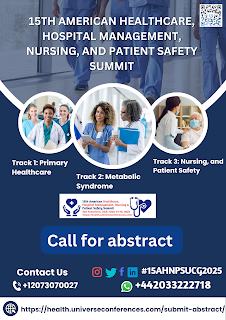What Recent Advances in Breast Cancer Research?
Researchers from all over the world are working to develop more effective methods for preventing, diagnosing, and treating breast cancer as well as enhancing the lives of patients and survivors.
The majority of the knowledge used to determine current
recommendations on breast cancer prevention, diagnosis, treatment, and
potential causes has come from research studies. Studies conducted in the lab
or clinical trials involving thousands of participants are both acceptable
forms of research. Clinical trials are Rigorously monitored research that can
investigate potential new therapies and learn particular details about certain
disorders.
One approach to obtaining the most recent cancer medicines
under investigation is through clinical trials. Nevertheless, not everyone
should use them. If your clinic or hospital conducts clinical trials, start by
asking your doctor if they could be a good fit for you. You can also learn more
by visiting Clinical Trials.
Research is still being done to determine how specific
aspects of a person's lifestyle, habits, and surroundings may increase their
chance of developing breast cancer. Here are a few illustrations:
Numerous research is investigating how nutrition, weight
gain or loss, and physical exercise affect the risk of developing breast
cancer.
Many of the gene mutations (changes) that result in the
familial transmission of some breast cancers are yet unknown. These gene
alterations are the subject of research.
The most effective way to employ genetic testing for
inherited breast cancer gene mutations is the subject of numerous studies.
Researchers are examining how frequent gene variations,
which are minor gene changes that do not significantly increase the risk of
breast cancer, may do so. Gene variations normally have a small impact on risk
when considered individually, but when combined they may have a significant
effect.
Recent years have seen an increase in research into
potential environmental factors contributing to breast cancer. Although much of
the science surrounding this subject is still in its infancy, there is
currently active research in this field.
For breast imaging, more modern test kinds are being
created. While some of these are currently being researched, others are already
being used in specific circumstances. It will take time to determine whether
they are as excellent as or superior to those now in use. These tests may
include:
PEM for breast imaging (PEM)
imaging using electrical impedance (EIT)
Elastography
novel optical imaging examinations
See Newer and Experimental Breast Imaging Tests for further
information on these procedures.
Studies on novel breast cancer treatments are ongoing. For
instance, a number of fresh targeted medications have just received approval to
treat breast cancer.
However, there is a need for more and better treatment choices, particularly for tumors like triple-negative breast cancer, when chemotherapy is the only alternative.
Research in the following areas is being done to treat breast cancer:
Determining whether shorter radiation therapy regimens are
at least as effective as the longer regimens now being utilized for treating
extremely early-stage breast cancer.
Testing if various radiation therapy modalities—such as proton beam radiation—might be superior to conventional radiation.
Combining specific medications to determine if they function better together, such as two targeted medications, a targeted medication, and an immunotherapy medication, or a targeted medication and a hormone medication.
Searching for new medications or medication combinations that could be used to treat brain-metastasized breast cancer
Several immunotherapy medicines are being tested for
triple-negative breast cancer
Combining regular chemotherapy with cancer vaccinations to determine
whether it can prevent the disease from returning after treatment
Developing novel therapeutic approaches for women with
hereditary breast cancer, who have a higher risk of the disease returning
(coming back)
Figuring out whether chemotherapy is required for all women
with HER2-positive breast cancer
When breast cancer becomes resistant to conventional
treatments, finding novel therapeutic alternatives
Reach out to us: https://breastcancerpathology.universeconferences.com/
Mail:
pathology@universeconferences.com| info@utilitarianconferences.com | breastcancer@ucgconferences.com
Whatsapp: +442033222718 Call: +12073070027
Previous
Blog Post Links:-
· https://kikoxp.com/posts/11632
· https://www.blogger.com/blog/post/edit/3238443600245550728/7246086302346767315
· 10th World Breast Pathology and Breast Cancer Conference |
LinkedIn
· https://wordpress.com/post/breastpath2022.wordpress.com/6
· https://medium.com/@elizaedwards2021/breast-cancer-disease-f0324f19b8a2
· https://www.blogger.com/blog/posts/3238443600245550728
· https://www.reddit.com/user/breastcancerucg1/comments/th0lj8/breast_cancer_disease/
· https://www.blogger.com/blog/post/edit/3238443600245550728/5272365125212681129
· https://kikoxp.com/posts/10351
https://www.tumblr.com/dashboard
https://medium.com/@Andreaross01/breast-cancer-in-men-326a71409c5
https://www.linkedin.com/pulse/breast-cancer-men-dr-priya-pujhari
https://www.linkedin.com/pulse/breast-cancer-symptoms-causes-dr-priya-pujhari
.png)
.png)


Comments
Post a Comment